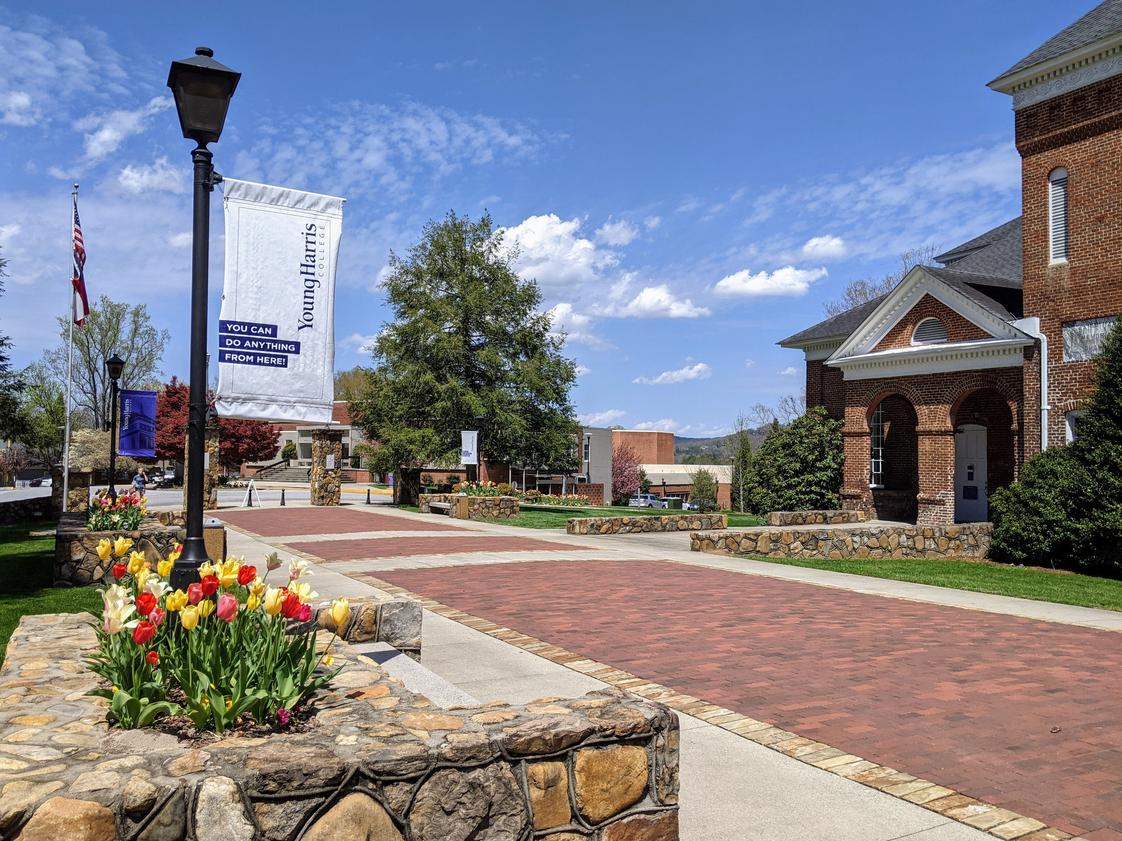- Young Harris College is a private baccalaureate and master`s degree-granting institution located in the beautiful mountains of North Georgia. Founded in 1886 and historically affiliated with The United Methodist Church, Young Harris College educates, inspires and empowers students through an education that purposefully integrates the liberal arts and professional studies. The College has four academic divisions: Fine Arts; Humanities; Mathematics, Science and Technology; and Professional Studies. More than 1,400 students are enrolled in its residential and Early College programs. The College is an active member of the NCAA Division II and remains a fierce competitor in the prestigious Peach Belt Conference. For more information, visit yhc.edu.
School Highlights
Young Harris College serves 1,744 students (52% of students are full-time).
The college's student:teacher ratio of 11:1 is lower than the state community college average of 18:1.
Minority enrollment is 36% of the student body (majority Black and Hispanic), which is less than the state average of 61%.
Quick Stats (2025)
- Enrollment: 1,744 students
- Private-state tuition: $30,317
- Acceptance Rate: 75%
- Student:teacher ratio: 11:1
- Minority enrollment: 36%
- Source: Verified school update
Top Rankings
Young Harris College ranks among the top 20% of public schools in Georgia for:
Category
Attribute
School Resources
School Overview
Young Harris College
(GA) Community College Avg.
Carnegie Classification
Baccalaureate Colleges: Diverse Fields
Associates--Public Rural-serving Medium
Institution Level
4 or more years
At least 2 but less than 4 years
Institution Control
Private, for profit
Public
Total Faculty
n/a
209 staff
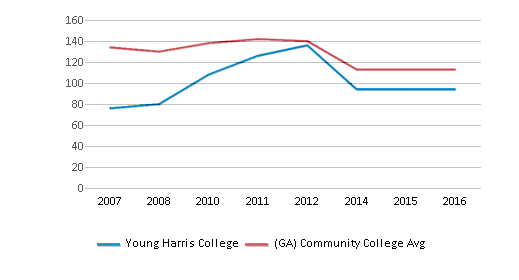
Number of Programs Offered
28
16
Student Body
The student population of Young Harris College has grown by 24% over five years.
The student:teacher ratio of 11:1 has increased from 7:1 over five years.
The Young Harris College diversity score of 0.58 is less than the state average of 0.71. The school's diversity has declined by 42% over five years.
Total Enrollment
1,744 students
2,242 students
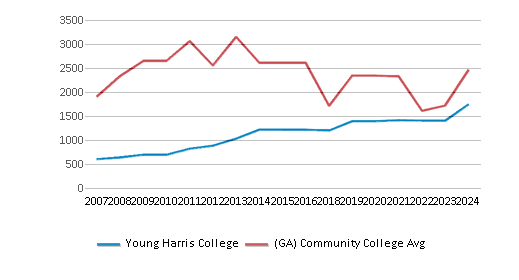
Student : Teacher Ratio
11:1
18:1
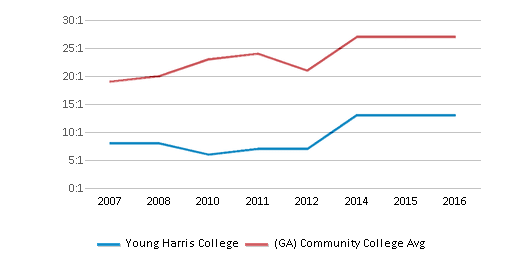
# Full-Time Students
906 students
882 students
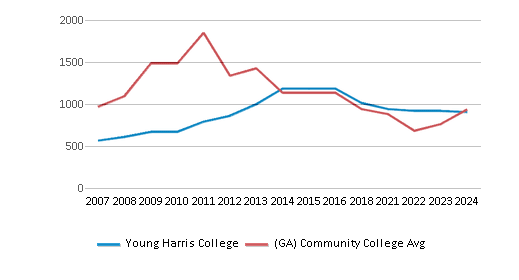
# Part-Time Students
838 students
1,722 students
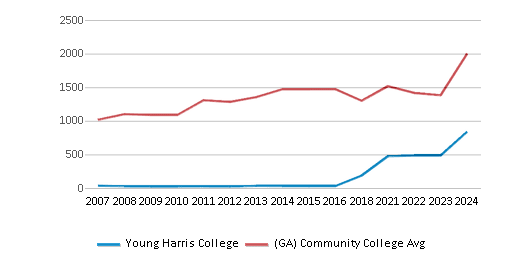
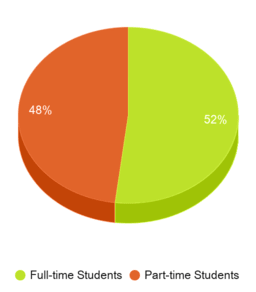
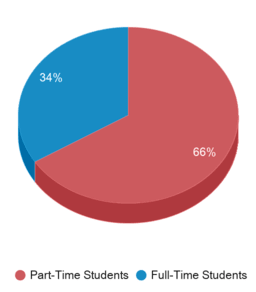
# Enrollment Undergraduate
171 students
299 students
# Full-Time Undergraduate Students
877 students
929 students
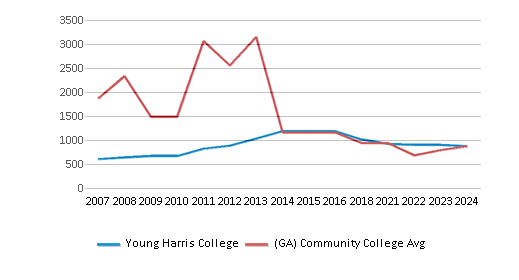
# Full-Time Graduate Students
29 students
87 students
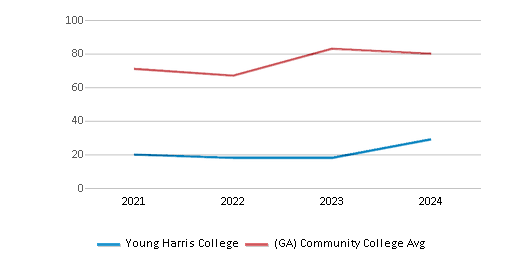
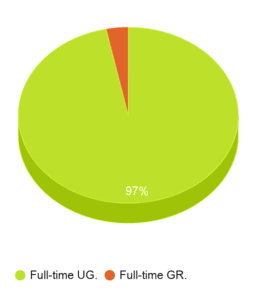
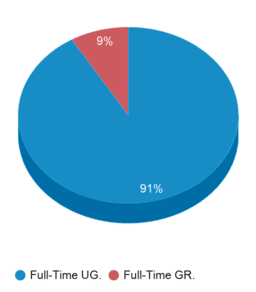
# Part-Time Undergraduate Students
838 students
1,891 students
# Part-Time Graduate Students
1 students
53 students
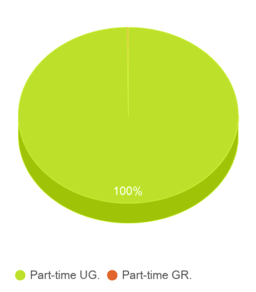
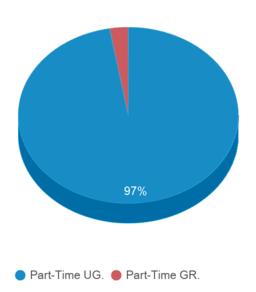
Total Dormitory Capacity
1,081 students
654 students
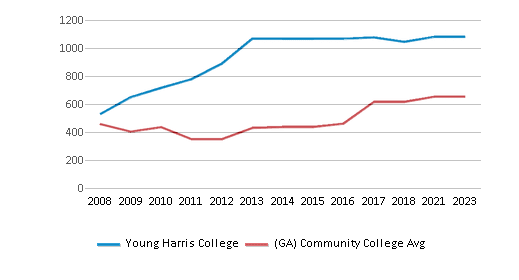
% American Indian/Alaskan
1%
n/a
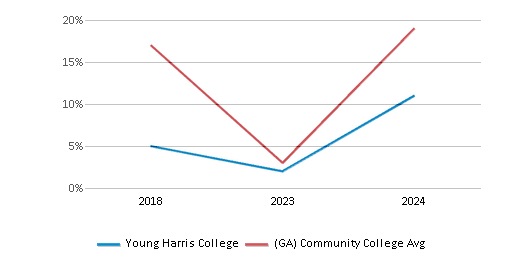
% Asian
2%
4%
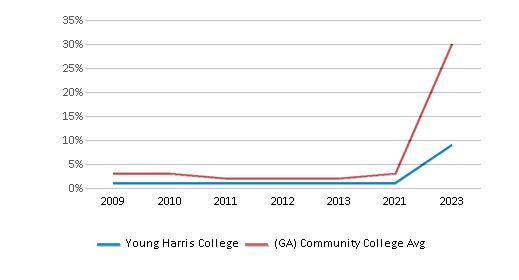
% Hispanic
7%
10%
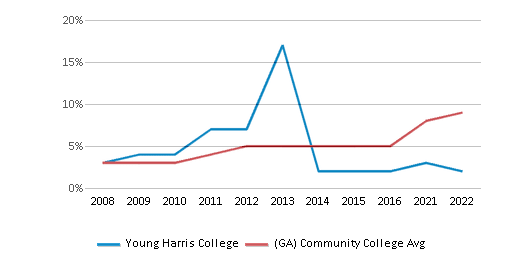
% Black
8%
35%
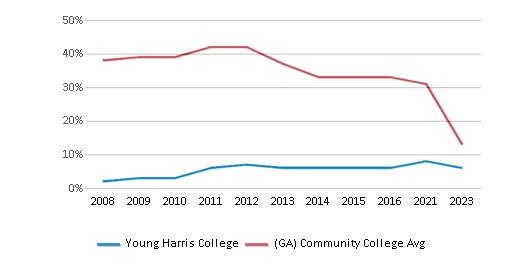
% White
64%
39%
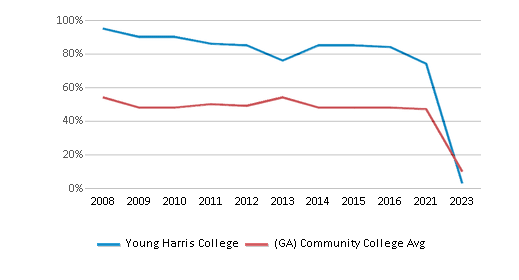
% Hawaiian
n/a
1%
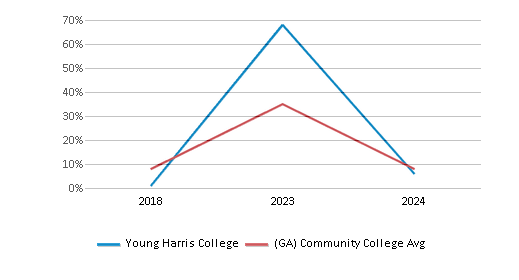
% Two or more races
4%
3%
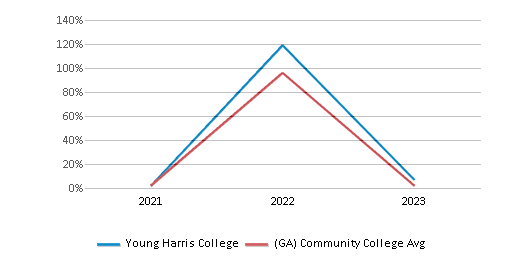
% Non Resident races
4%
1%
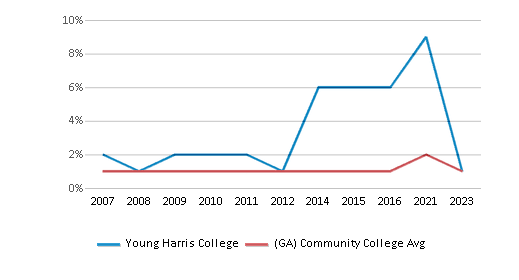
% Unknown races
10%
7%
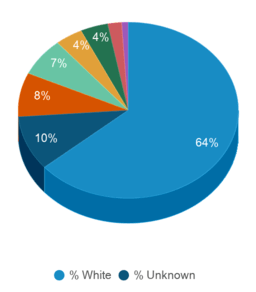
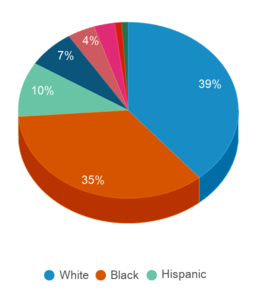
Diversity Score
0.58
0.71
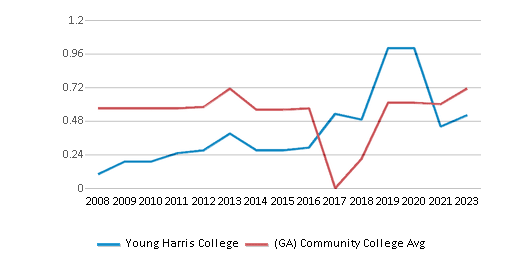
College Completion Rate (Students who graduate in less than 4 years)
36%
31%
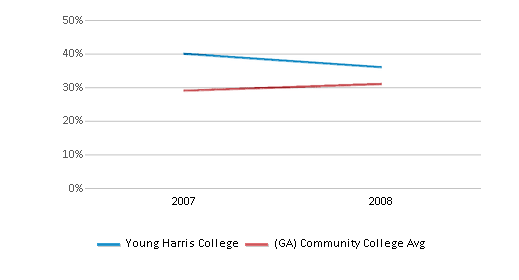
College Completion Rate (Students who graduate in 4 years or more than 4 years)
0.4923%
0.2368%
Average Graduate Earnings (10 Years)
$39,300
$29,500
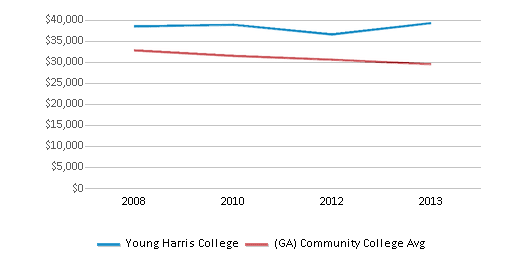
Tuition and Acceptance Rate
The private state tuition of $30,317 is more than the state average of $15,267. The private state tuition has stayed relatively flat over four years.
Private State Tuition Fees
$30,317
$15,267
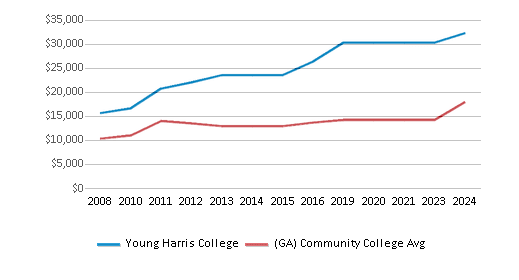
% Students Receiving Some Financial Aid
100%
93%
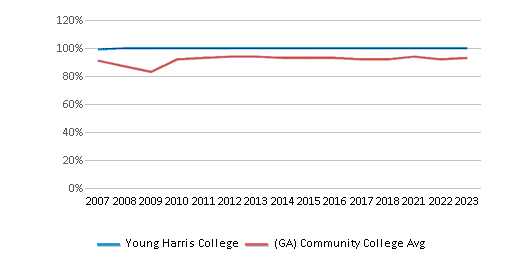
Median Debt for Graduates
$27,000
$12,139
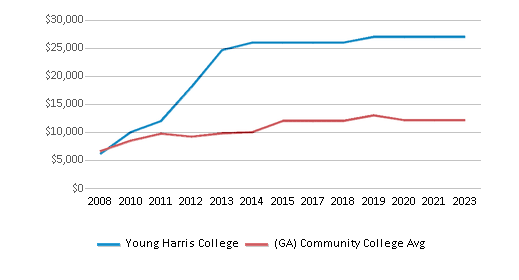
Median Debt for Dropouts
$6,261
$5,500
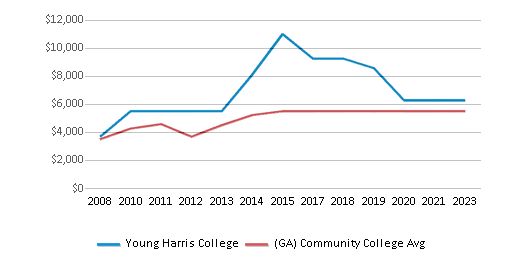
Acceptance Rate
75%
75%
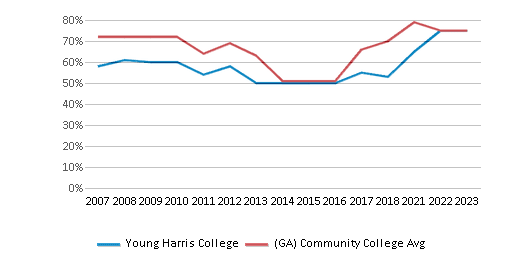
SAT Reading
535
533
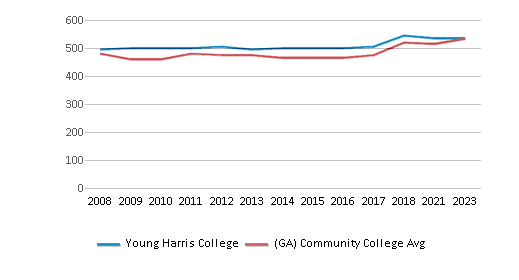
SAT Math
510
515
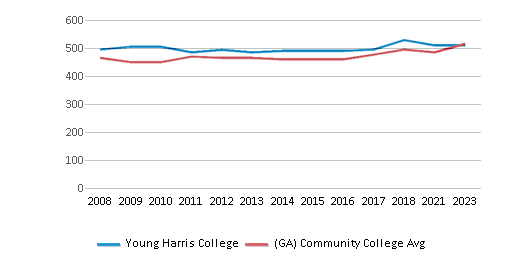
SAT Writing
490
470
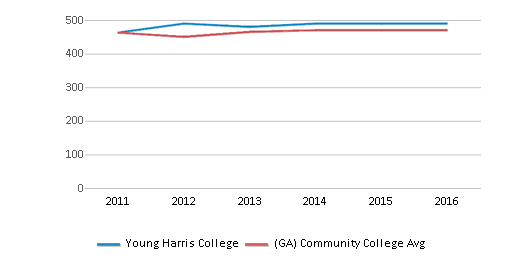
ACT Composite
22
20
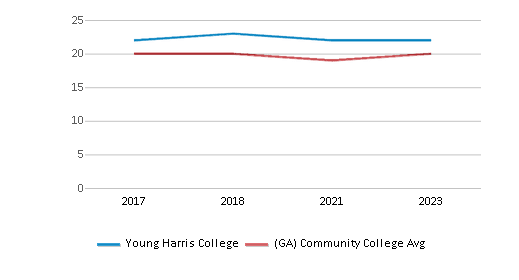
ACT English
19
19
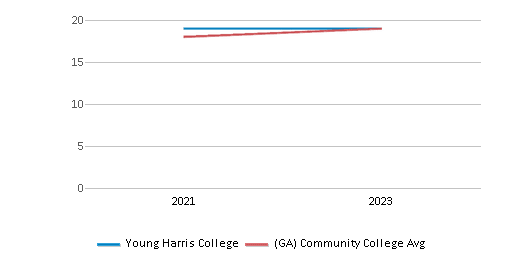
ACT Math
20
20
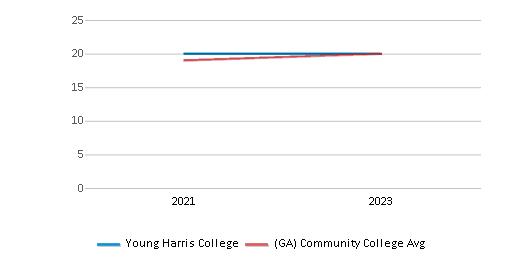
ACT Writing
n/a
7
Sports
Total Sports Offered
10 sports
Sports
Baseball, Basketball, Cheering, Cross Country, Golf, Lacrosse, Soccer, Softball, Tennis, Volleyball
Source: 2024 (or latest year available) Integrated Postsecondary Education Data System (IPEDS) , School Administrators
School Notes
- History:Founded in 1886 by circuit-riding Methodist minister Artemas Lester
- Location:Young Harris, Georgiain the North Georgia mountains, approximately two hours from Atlanta, Chattanooga, Asheville and Greenville
- Fall 2020 Enrollment: 1,396 traditional and dual-enrollment students, 21 graduate students
- Student/Faculty Ratio:11:1
- Classes Taught by Full-Time Faculty:100 percent
- Typical Class Size:13
- Students Receiving Scholarships/Grants:Nearly 100 percent
- Student Organizations:More than 60
- Athletics:Men`s baseball, tennis, golf, soccer, basketball, lacrosse, cross country; Women`s softball, tennis, golf, soccer, basketball, lacrosse, cross country, volleyball
Profile last updated: 01/14/2025
Frequently Asked Questions
How much does Young Harris College cost?
Young Harris College's private state tuition is approximately $30,317.
What is the acceptance rate of Young Harris College?
The acceptance rate of Young Harris College is 75%, which is equal to the state average of 75%.
What sports does Young Harris College offer?
Young Harris College offers 10 interscholastic sports: Baseball, Basketball, Cheering, Cross Country, Golf, Lacrosse, Soccer, Softball, Tennis and Volleyball.
What is Young Harris College's ranking?
Young Harris College ranks among the top 20% of community college in Georgia for: Percent of students receiving financial aid.
Recent Articles

Obtaining Your Bachelor's Degree at a Community College
Explore the evolving landscape of community colleges offering bachelor's degrees, addressing affordability, accessibility, and workforce needs.

A to Z of Community College Certificates and Courses
From business and healthcare to technology and skilled trades, the article showcases the breadth of options available to students seeking to enhance their knowledge, develop new skills, or pursue career advancement.

What is a Community College?
This comprehensive guide explains what a community college is, its history, and its role in higher education. It covers the types of programs offered, differences from four-year colleges, benefits of attending, and important considerations for prospective students, providing valuable insights for those exploring educational options.

